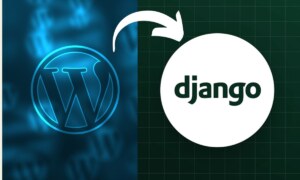A compiler and an interpreter are both tools used in software development to convert high-level programming code into a format that a computer can understand. However, there are significant differences between the two:
1. Compilation Process:
– Compiler: A compiler translates the entire source code written in a programming language into machine code (executable code) before the program is run. It performs the translation in a single step, generating an output file that can be executed independently.
– Interpreter: An interpreter, on the other hand, translates and executes the source code line by line, without generating an independent executable file. It reads each line, interprets it, and executes it immediately.
2. Execution:
– Compiler: After the compilation process, the compiler produces an executable file that can be directly executed by the computer’s processor. The resulting machine code is typically stored on disk and can be run multiple times without recompilation.
– Interpreter: The interpreter executes the source code directly, without producing a separate executable file. It reads each line, interprets it, and executes it immediately. The interpretation happens during runtime, line by line.
3. Performance:
– Compiler: Since a compiler translates the entire source code upfront, it optimizes the code for efficiency. This can result in faster execution times, as the compiled program directly runs in machine code.
– Interpreter: An interpreter typically executes code more slowly compared to a compiled program because it needs to analyze and interpret each line during runtime. However, modern interpreters often include just-in-time (JIT) compilation techniques to improve performance.
4. Debugging:
– Compiler: Debugging a compiled program can be more challenging since the compiled code does not always have a direct correspondence with the original source code. Debugging often requires additional tools and techniques.
– Interpreter: Debugging an interpreted program is usually easier because the interpreter can provide more detailed error messages, and it executes the code line by line, allowing for easier identification of issues.
5. Portability:
– Compiler: Compiled programs are generally platform-dependent, meaning they are compiled for a specific hardware and operating system. To run a compiled program on different platforms, it may need to be recompiled for each target platform.
– Interpreter: Interpreted programs are typically more portable since the interpreter itself can be run on different platforms. As long as the interpreter is available for a specific platform, the interpreted code can be executed without modifications.
In summary, compilers translate the entire source code into machine code before execution, resulting in faster performance and platform-specific executables. Interpreters, on the other hand, execute the source code line by line during runtime, providing more flexibility and easier debugging, but usually at the cost of slightly slower performance.


